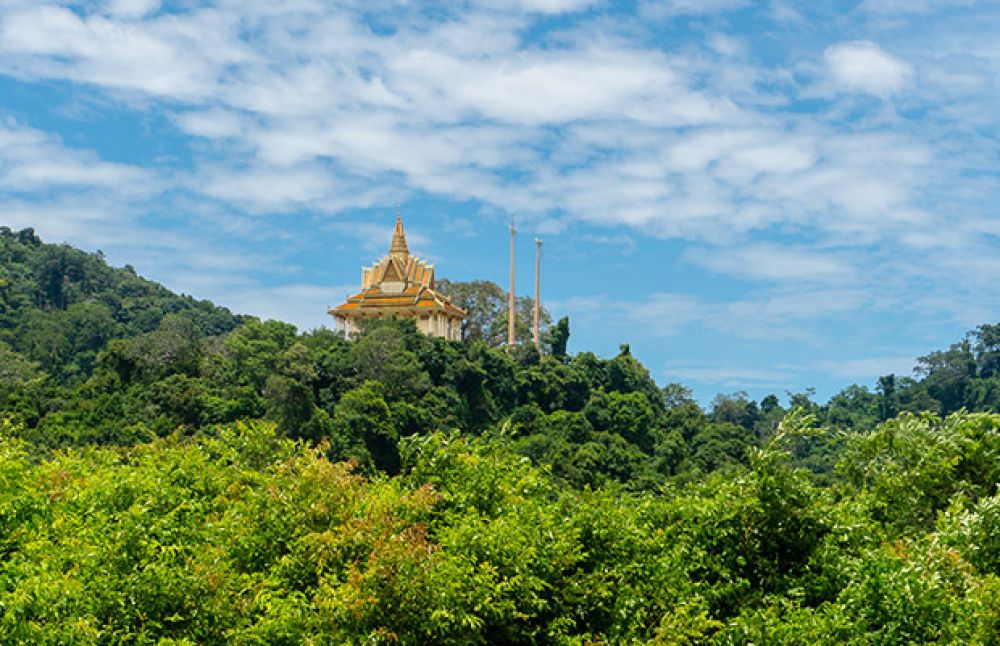

The charming coastal town of Kep in Cambodia, known for its tranquil beaches and succulent seafood, is also home to a sacred gem – the Wat Samathi Pagoda. Founded in the 1960s, the Wat Samathi Pagoda has stood as a beacon of peace and spiritual significance for both locals and tourists alike.
Initially constructed during a time when Cambodia was embracing modernity and progress under the rule of Prince Norodom Sihanouk, the pagoda represented a blend of traditional spiritual values with the new wave of development. However, the years of the Khmer Rouge regime brought about destruction and a standstill to the evolution of tourism in the region, including at religious sites like Wat Samathi.
With the fall of the Khmer Rouge and Cambodia's gradual re-emergence on the world stage, the Wat Samathi Pagoda, like many other cultural landmarks in the country, underwent restoration and began to attract visitors once again. Its serene location and the burgeoning interest in Cambodian culture and heritage contributed to its steady rise in popularity among those seeking a deeper understanding of the nation's history and spiritual practices.
Today, Wat Samathi stands as a testimony to Kep's resilience and its cultural renaissance. Visitors to the pagoda can witness the daily lives of monks, participate in traditional ceremonies, or simply absorb the tranquility of its surroundings. The integration of cultural tourism and eco-tourism is evident here as individuals look to connect with both the environment and the local customs in a meaningful way.
In recent years, there has been a surge in interest towards more responsible and sustainable tourism practices. Tourists visiting Wat Samathi now often engage in community-based tourism activities, including learning about Cambodian Buddhism, meditation retreats, and supporting local artisans.
For those planning to visit the Wat Samathi Pagoda, it is important to note that it remains an active place of worship. Visitors are expected to dress modestly and behave respectfully within the temple grounds. Photography is usually permitted, but it is always best to ask for permission, especially when it involves taking pictures of the monks or during religious ceremonies.
Kep's burgeoning tourism infrastructure catery to a range of visitors, ensuring there are ample accommodation options and tour guides available for those wishing to delve into the region's historical and cultural aspects.
In summary, Wat Samathi Pagoda is much more than a simple tourist attraction; it is a symbol of Kep's spiritual heritage and a testament to Cambodia’s journey through times of tribulation towards a future of hope and revival.
The blend of historical significance and the recent trend towards sustainable and mindful travel makes Wat Samathi Pagoda an essential stop for any visitor to Kep, providing an enriching experience that honors Cambodia's past while celebrating its present and future.